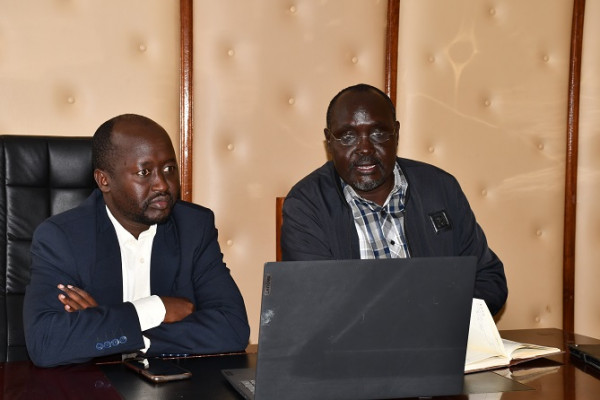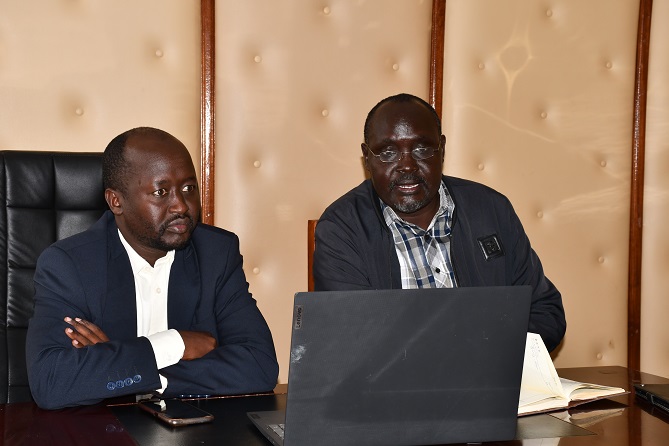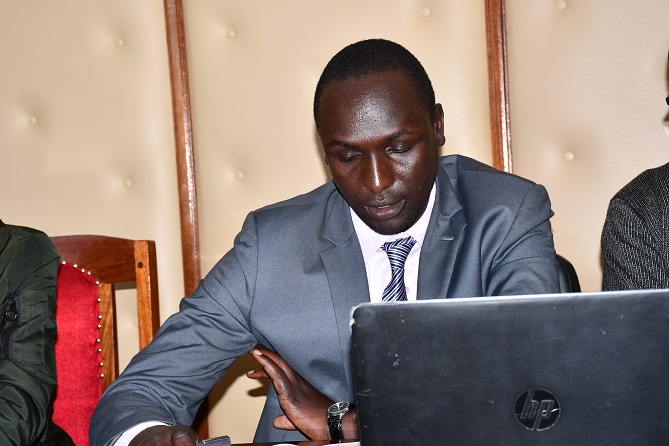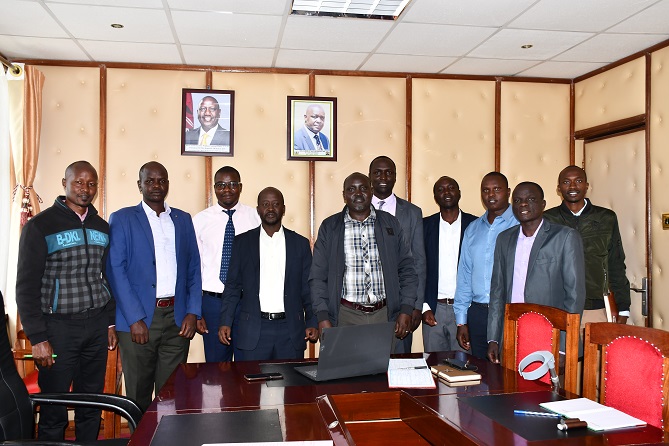DEPUTY GOVERNOR KOMOLLE LEADS DELIBERATIONS ON REVENUE AUTOMATION
Deputy governor Robert Komolle held
an exit meeting with a team from Kenya Revenue Authority (KRA) to assess
county’s revenue collection system and plans to enhance revenue collection.
The meeting followed a two-week Tax Administration Diagnostic Assessment Tool (TADAT) training and assessment of the county revenue administration systems.
The assessment has already been conducted in nine (9) counties among them West Pokot, Tana-River, Meru, Kericho, Kirinyaga, Kisii, Nakuru, Kakamega and Trans Nzoia.
During the 16th Ordinary Session of Intergovernmental Budget and Economic Council held on 5th April 2022, it was noted that own source revenue is a sleeping giant that can unlock the economic potential and growth of county governments. This necessitated the need to train revenue administrators to be able to leverage on the potential of counties to collect more revenue effectively.
The training, said Wati Jimmy in charge of Innovation and Delivery at KRA, also sought to capacity building County Revenue officers on what constitutes international best practice for tax administration/County revenue administration for the various performance outcome areas, as well as identify strengths and weaknesses of county revenue system.
Deputy Governor Komolle said the county was keen to automate revenue collection to enhance revenue growth across the county. He asked KRA through International Monetary Fund to support the county set an automated revenue collection system to enhance integrity and transparency.
The Tax Administration Diagnostic Assessment Tool (TADAT) used for the assessment is an internationally recognized tool developed by the International Monetary Fund (IMF) and its partners and applied by tax administrations globally to establish the strengths and weaknesses in revenue administration to guide their reform agenda.



